Russia Tries To Control Damage Over Iran Island Spat

Despite Russia’s siding with the UAE this week regarding sovereignty over three Iranian islands, Moscow has tried to somewhat contain the fallout.

Despite Russia’s siding with the UAE this week regarding sovereignty over three Iranian islands, Moscow has tried to somewhat contain the fallout.
Last week Russia supported the United Arab Emirates’ sovereignty over three contested islands - Abu Musa, and the Greater and Lesser Tunb - in the Persian Gulf, causing diplomatic frictions with Iran.
In a bid to repair the diplomatic furor, Russian Deputy Foreign Minister Mikahil Bogdanov told Iran’s ambassador to Moscow Kazem Jalali on Friday that “the Russian Federation respects the sovereignty and territorial integrity of the friendly country of Iran”.
IRNA, the state news agency claimed that the remarks indicated that Russia had revised its position on the three islands.
However, a tweet by the account of the Russian Foreign Ministry used the term Arab Gulf for the Persian Gulf on Wednesday to insist on its stance. The move by the Russian Foreign Ministry again drew widespread criticism from Iranians on social media.
The Foreign Ministry summoned Russia's ambassador and Foreign Minister Hossein Amir-Abdolahian and government spokesman Ali Bahadori wrote in separate tweets that "Iran will not compromise over its national interests and territorial integrity."
However, Tehran’s official reaction to Russia has been meek. The two have collaborated more deeply over the last year, including Iran’s providing Russia with drones and ammunition for its war in Ukraine.
Social media users recognized that officials had made a compromise by not naming Russia in their tweets as tensions simmered behind the scenes.

Four border guards were injured in a booby trap car bomb near the Mirjaveh border with Pakistan in Iran’s Baluch populated southeast.
According to state news agency IRNA, the condition of three of the injured is stable, but one was transferred to the provincial capital Zahedan for treatment.
Haalvsh website, which covers the events in Sistan-Baluchestan province, earlier reported that a military vehicle was targeted by an explosion in the Shahrak area of the border town of Mirjaveh.
It quoted local sources as saying that the situation is tense, and said military vehicles are patrolling the city. No group has yet claimed responsibility for the explosion.
Last week, an attack on a police station in the Sunni majority city of Zahedan claimed the life of two policemen. According to Iranian law enforcement officials, four gunmen who used hand grenades were also killed.
Tensions in Sistan-Baluchestan have been high since security forces, under the command of the Revolutionary Guards, killed an estimated 80-90 civilian protesters in the city on September 30, which became known as Black Friday.
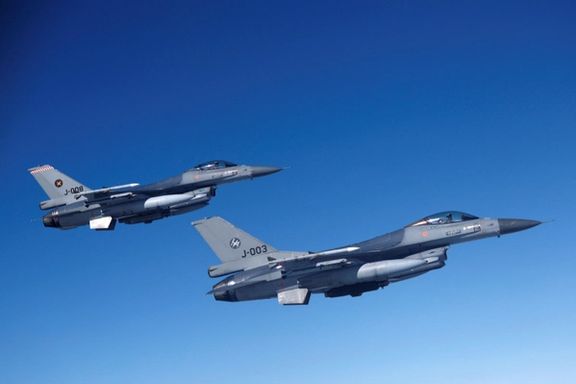
After adopting a more active posture to deter Iran in the Persian Gulf, the Pentagon said Friday it will deploy more warplanes to protect shipping in the region.
The US already uses A-10 fighter jets to patrol the strategic waterway, in particular the narrow Strait of Hormuz from Iranian attempts to seize oil tankers navigating in international waters, but it will now deploy additional F-16 jets.
A Pentagon official speaking to reporters on condition of anonymity said the F-16s will be an additional element to deter Iran and provide protection to commercial shipping.
Iran’s latest attempt to interfere with commercial shipping occurred earlier this month when it tried to seize two vessels. The US Navy announced July 5 that it prevented Iranian naval forces from diverting the vessels including the Richmond Voyager, a supertanker managed by Chevron in the Strait of Hormuz, the narrowest part of the Persian Gulf.
The official said that in both cases Iranian forces withdrew as the US Navy arrived on the scene.
Iran has been harassing commercial shipping in recent years and seized multiple vessels since 2019. Over the years, Iranian speedboats also harassed US Navy ships, sometimes in dangerous maneuvers.
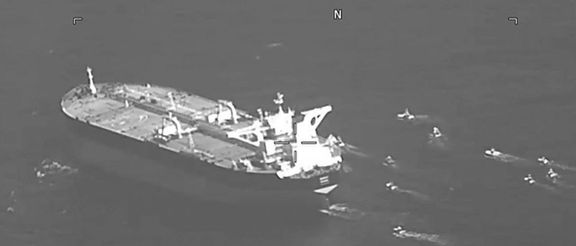
“[The] United States will not allow foreign or regional powers to jeopardize freedom of navigation through the Middle East waterways, including the Strait of Hormuz,” National Security Council Coordinator for Strategic Communications John Kirby told reporters May 12. The US Navy in early June said that Iran had interfered with or attacked 15 internationally flagged merchant ships over the past two years.
Iran’s provocative actions come as attempts to restrict its uranium enrichment and reach a nuclear agreement have remained unsuccessful since President Joe Biden assumed office in January 2021. Iran has expanded military cooperation with Russia, supplying hundreds of kamikaze drones that are being used in Ukraine against civilian and military targets.
The Pentagon official also told reporters the US is concerned about more Russian aggressive actions in Syria in collaboration with Iran and the Syrian government.
Recently Russian warplanes tried to interfere with operations of US military drones that were trying to attack Islamic State group targets in Syria.
The official told reporters that Iran’s supply of drones to Russia and support for the invasion of Ukraine has given political leverage to the Islamic Republic that wants to use the Russians to expel the United States from Syria. The US also believes there is more planning and intelligence sharing cooperation now between Russian and Iranian IRGC forces in Syria to pressure US to withdraw troops from Syria.
Iran also probably wants to use escalatory tactics to force Washington to accept its terms in recent reported diplomatic contacts between the two sides aimed at some sort of a deal over three Americans held hostage by Tehran.
Iran wants Washington to agree to around $20 billion of its funds in third countries to be released, which would be significant for its beleaguered economy. Iraq holds around $10 billion of debts to Iran, while South Korean banks hold another $7 billion.
Pro-Iranian Iraqi Shiite militia groups also organized a protest Friday near the US embassy in Baghdad, demanding non-interference by the United States in Iraq’s internal affairs. Iran however, is deeply enmeshed in Iraqi politics using its proxy forces.
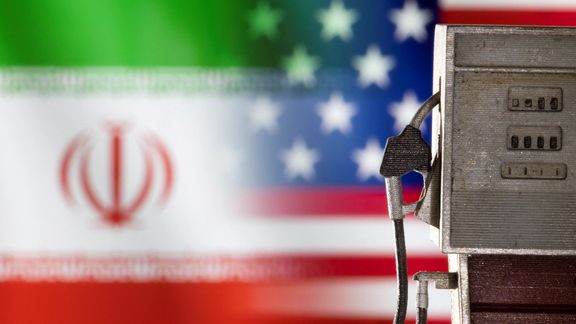
A barter of Iranian natural gas for Iraqi oil as described by the Iraqi prime minister this week would likely violate US sanctions on Tehran.
The only path for a clean deal would be for the US to issue a waiver permitting it, three former US officials have told Reuters.
Iraqi Prime Minister Mohammed Shia al-Sudani on Tuesday said Iraq would begin trading crude oil for Iranian gas to end recurring payment delays to Tehran due to required US approval for such transactions.
Sudani said Iran had cut gas exports to Iraq by more than half as of July 1 after Baghdad failed to secure US approval to disburse owed funds, but Tehran had now agreed to resume gas exports in exchange for crude oil.
There are few details available about the potential barter, which could help defuse a political problem for Sudani since power cuts are unpopular during the sweltering Iraqi summer when temperatures can top 50 Celsius (122 Fahrenheit).

However, three former US officials said a barter would likely run afoul of US sanctions.
"It would be a violation of US sanctions to conduct this kind of a barter transaction with Iran absent a US national security waiver being issued," said Richard Goldberg of the Foundation for Defense of Democracies think tank.
"This would be prohibited under the Iran Freedom and Counter-Proliferation Act, which prohibits any transaction related to energy with Iran," added Goldberg, who served on the Trump administration national security council staff.
Secretary of State Antony Blinken issued a 120-day waiver on March 21, a State Department official said, allowing Iraq to pay Iran only for electricity imports, not for natural gas to fuel Iraqi domestic power generation.
"The March 2023 waiver, granted by the Secretary, allows Iraq to purchase electricity from Iran. Nothing else," said the official on condition of anonymity. That waiver was announced by the State Department on March 31.
There has been speculation the waiver might be amended to allow barter, an issue the official declined to address.
"We are not in a position to preview any future decisions related to the waiver. We have no comment at this time regarding reports of a barter arrangement between Iraq and Iran," the official said.
The Iraqi embassy in Washington did not immediately respond to a request for comment.
Former US officials said the Treasury Department, which oversees most US sanctions against Iran, defines the term "transaction" so broadly that it would cover a barter exchange.
"The test is whether it's a 'significant' transaction. The test is not whether it's denominated in one currency or another or whether ... it's a barter," said a former senior Treasury official on condition of anonymity.
The former official said that could provide "enough wiggle room ... for the US to look the other way, but that is a political decision, that's not a legal question.
"As far as a strictly legal question, it absolutely does violate US sanctions," he added.ew Miller, the spokesperson for the US State Department, calling it "a leave of absence”, adding that his duties would be temporarily assumed by his deputy, Abram Paley. However, it is believed he had been suspended as early as April.
Capitol Hill Republicans are growing increasingly frustrated with the Biden administration’s unwillingness to share information about the issue. Adding salt to the injury, an article by Tehran Times, a publication controlled by the Iranian regime, provided astonishing details about Malley's situation. This has led to concerns that the Iranian government knows more about the issue than US lawmakers.
(This report was published by Reuters under the name of Arshad Mohammed)
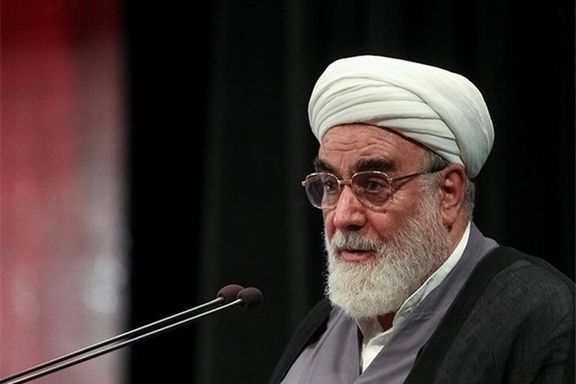
Iran’s Supreme Leader's Chief of Staff says the internet is a scourge, claiming that Ali Khamenei is the main target of people’s attacks.
According to Iranian media on Friday, Gholamhossein Mohammadi Golpayegani said: “The virtual space has become a bane, but despite their [enemies'] relentless efforts and investments in promoting indecency and other vices, they have not succeeded in alienating people from their religion and beliefs", referring in regime terminology to the US and Israel.
He mentioned large religious ceremonies – sponsored and organized by the regime with rent-a-crowd demonstrations – as proof of the enemies’ failure in their attempts to water down the nation's religious ideology.
His remarks came amid a widespread disregard for religious laws in Iranian society. Despite threats and prosecution by the regime’s authorities, a growing number of Iranian women are appearing in public without mandatory hijab since protests began in mid-September following the death of Mahsa Amini in custody of hijab police.
Touching upon the public's resentment towards Khamenei, Golpayegani claimed that the totalitarian ruler is under most attacks because he is “the main pole” that has kept the regime standing.
Despite numerous attacks against the regime’s military inside the country and on its proxy forces across the region, he said the “enemies” do not dare to attack Iran. During the tirade, he also reiterated regime claims that the entirety of Israel in within the range of the regime missiles.
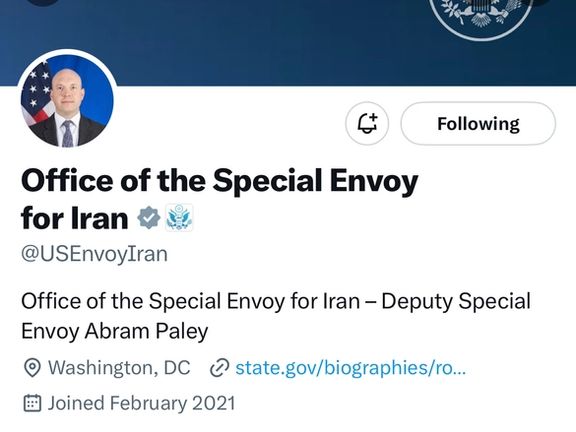
The deputy of former US envoy for Iran has taken over his Twitter account after his suspension for security reasons was reported two weeks ago.
The office of the US Special Envoy for Iran showed its first signs of life following days of media storm about circumstances surrounding former envoy’s dismissal on Friday.
The official twitter account of the mission said: “The Office of the Special Envoy for Iran and the entire team at the State Department remain engaged in implementing our policy on Iran.” The account had been inactive since early June, about a month before Malley’s suspension was announced.
The Biden administration and the State Department are under fire by the Congress, which was kept in the dark about the developments around Robert Malley, including his unpaid leave of absence, suspension of his security clearance and the FBI investigation over his mishandling of confidential information.
The account, whose profile picture has been changed to Deputy Special Envoy Abram Paley – Malley's replacement – added: “We continue our work with allies and partners to constrain Iran’s destabilizing behavior, defend human rights, encourage de-escalation, and promote a stable, prosperous, and more integrated Middle East.”
Malley’s suspension was first reported by Iran International on June 29, and formally announced the following day by Matthew Miller, the spokesperson for the US State Department, calling it "a leave of absence”, adding that his duties would be temporarily assumed by his deputy, Abram Paley. However, it is believed he had been suspended as early as April.
The development came a day after a group of 18 Republican senators called for a probe into the handling of Malley’s security clearance investigation by the State Department.